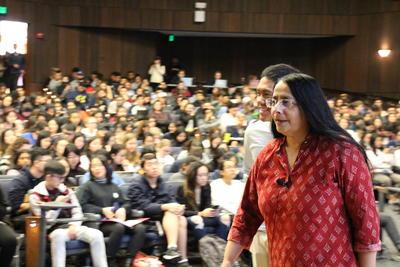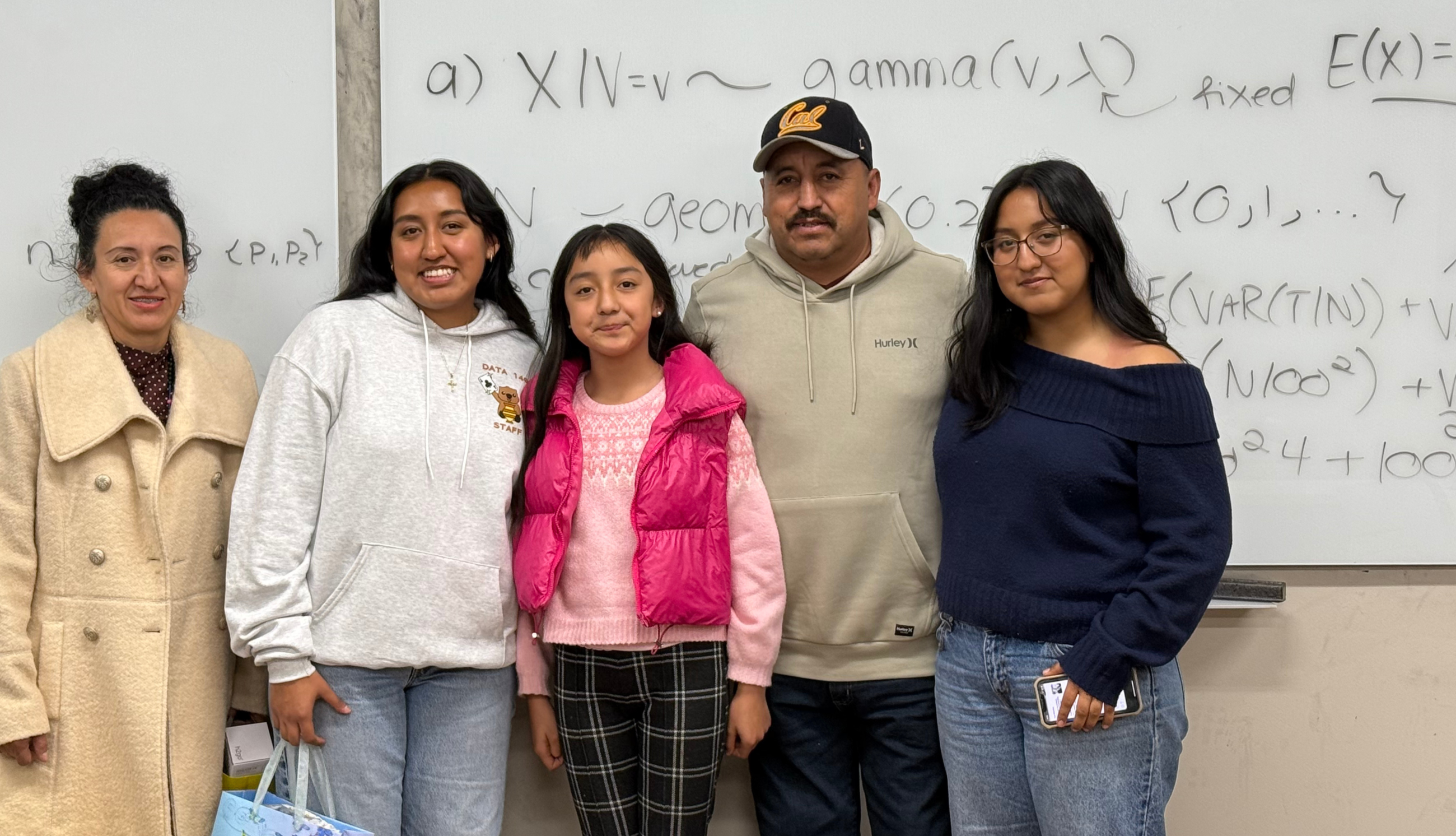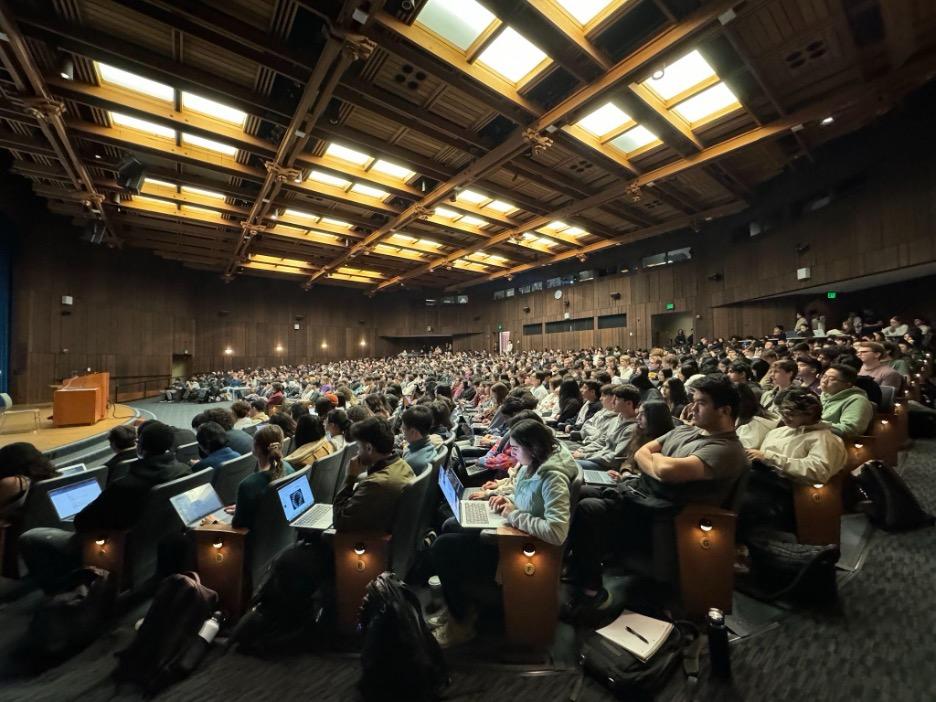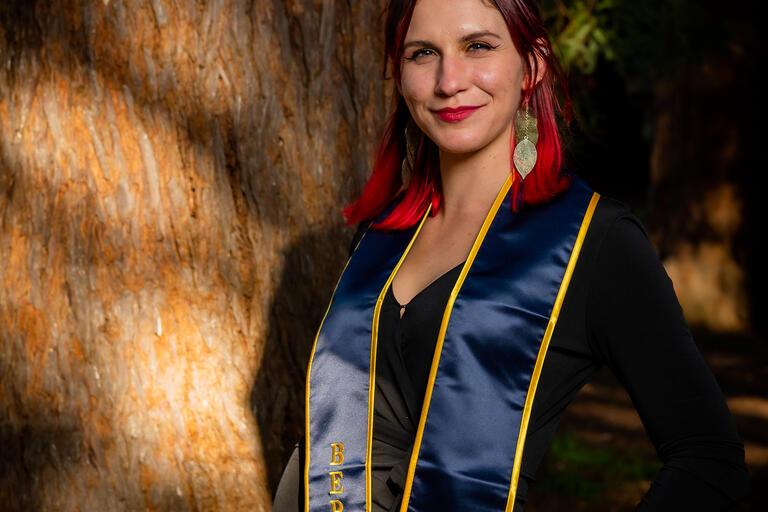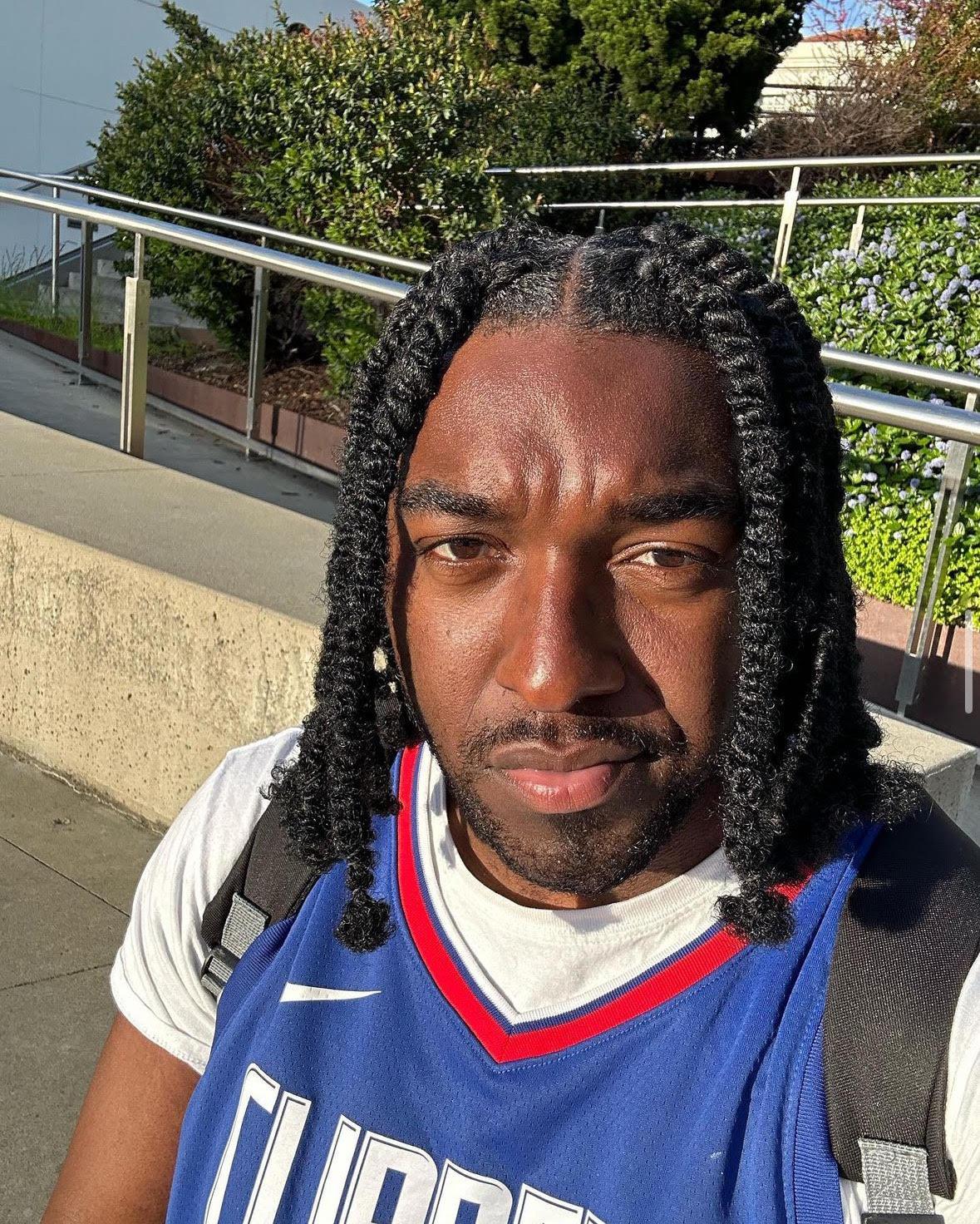
When William Reed entered UC Berkeley as a first year, he never predicted starting down a pathway in STEM. He’d struggled in calculus and chemistry in high school and told himself he wasn’t good at those types of subjects. But that first semester, his social science courses didn’t excite him as deeply as he’d hoped and his vision of a college experience filled with political internships began to waver.
Then, Reed took Data 8. It was an unlikely fit. Reed had taken an introductory coding class, but had no experience with statistics and the subject proved difficult. Yet by enrolling in the accompanying Data Scholars section, he found the mentorship and community he hadn’t realized he’d been searching for. "In other classes, I’ve sometimes felt isolated, especially when I don’t see many other people from underrepresented groups,” explained Reed. “But Data Scholars is set up to give you familiar faces in classes as you work through the major, people you can talk to or study with." It sparked enough interest that he wanted to see where this could lead.
As it turned out, it would lead to Reed teaching the very subject he was struggling in.
A budding confidence
A Data Scholars teaching assistant, Ciara Acosta, recognized something in Reed in that foundations course. Yes, he was having difficulties with the statistics concepts, but he approached the learning with determination and resilience. She encouraged him to apply for a tutoring position the next term.
Reed's interest in teaching began early. He started tutoring in middle school, work he continued throughout high school and into his college career, where he initially tutored Berkeley High School students.
While Reed was excited for the opportunity, he was nervous entering his first role working with UC Berkeley students. As a tutor for Data 8, he was assigned to host homework parties and help small groups with assignments.
Reed laughs as he recalls those early days. “They gave the tutors solutions to the problem sets and told us to try not to refer to them in front of the students. But I was so unconfident, that I was always like, ‘Um, let me check to make sure.’”
But his confidence grew over three semesters as a tutor and he soon was able to comfortably walk students through the steps of a problem in ways that fostered their understanding. He realized he was ready for a bigger challenge–teaching a Data 8 section of thirty students. Only, there was a problem. He didn’t meet the criteria as he hadn’t earned the A- or higher in Data 8 required to apply.
Professor Ani Adhikari, Faculty Director of Pedagogy in Data Science Undergraduate Studies, listened to Reed’s goal and offered him a deal. If he got an A- in one of his fall data science courses, she would guarantee him a teaching role the next semester. Reed’s determination to teach drove him to buckle down and earn the grades.
The next term, he found himself at the head of a thirty-student section.
Strength out of struggle
This new challenge was something Reed had worked for, but it was still outside of his comfort zone. "I’m kind of soft-spoken, so that first lab, the students in the back couldn’t hear me. It was so embarrassing." However, Reed wasn’t taking this step in his teaching journey alone. He enrolled in Data 375, a pedagogy course designed to train and support new teaching assistants. In it, he found community and a space to reflect on who he wanted to be as a teacher. Talking with other students in teaching roles solidified Reed’s vision of fostering an encouraging environment, especially for those stumbling during their introduction to the subject.
Reed now shares his own story of his Data 8 experience with students, offering reassurance and advice. "I’m straight up with them–when I took the course, my grades weren’t the absolute best, but I worked my way to the point where I can teach it. Sometimes the skills won’t click until later, maybe even after the class is over, and that’s an okay thing to happen.”
Academic setbacks can be enough to turn students away from a new field, especially for students who don’t see their identities or backgrounds represented. Reed’s sincerity offers students a model of working through challenges and developing an understanding over time. The impact has been profound. Reed bashfully admits that students have approached him on campus after the term is over to share what a meaningful difference he made in their academic experience.
And perhaps all that persisting through the material has gifted Reed with a talent for explaining it. During his semester teaching Data 8, of the sections taught by first time TAs, his earned the highest average grade on the course midterm.
Reflecting on the journey
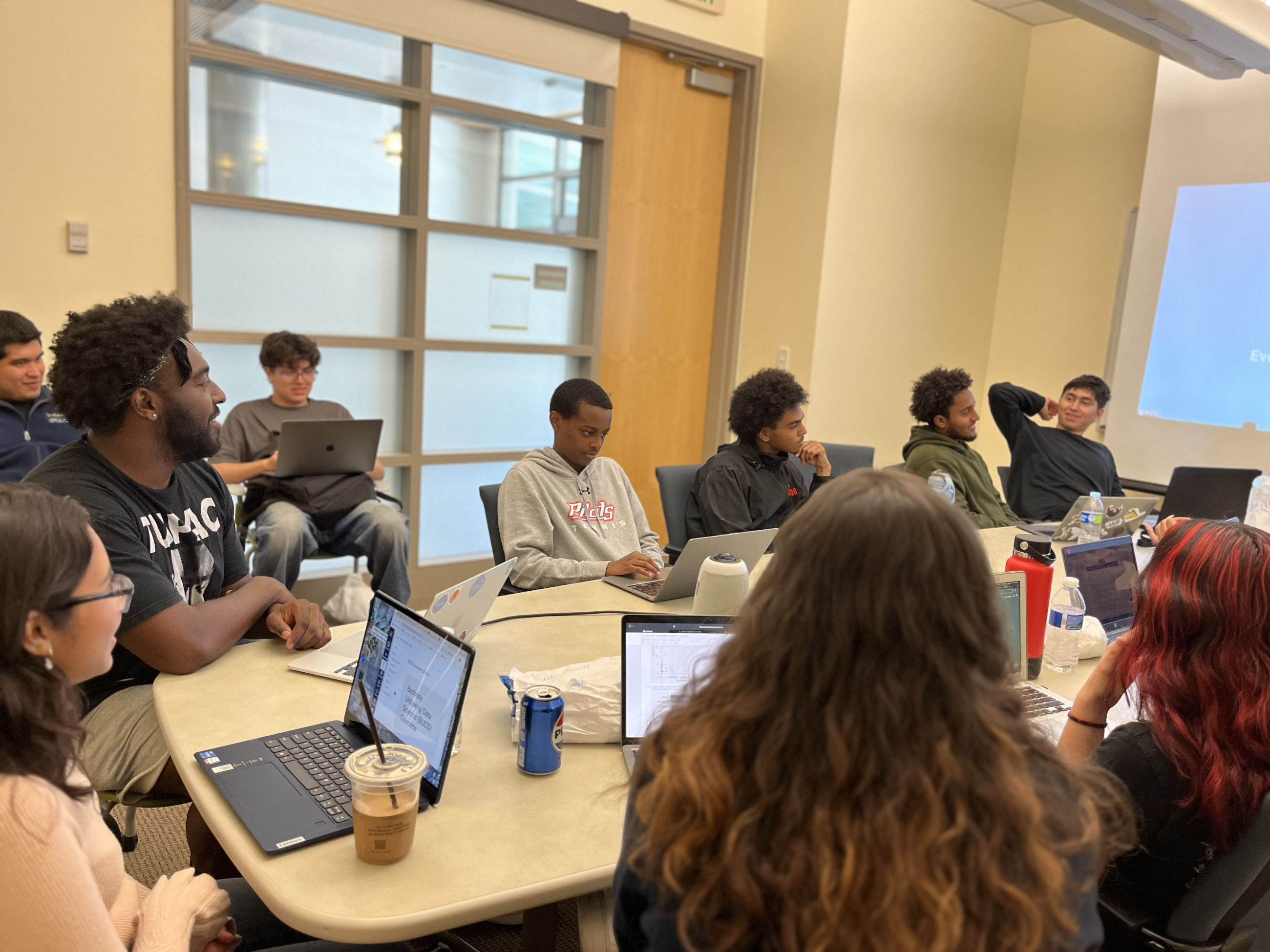
This summer, Reed joined the Berkeley Unboxing Data Science (BUDS) program, which introduces high school students from underrepresented backgrounds to data science. He and his co-lead facilitator, Edwin Vargas Navarro, made a change to this year’s final project, allowing students to choose data sets that align with their passions.
Reed smiles fondly as he talks about the topics of each student’s chosen data set, from health outcomes after natural disasters to Formula One. Through personalizing the experience, he hopes to ignite their interest, helping them see the possibilities within data science.
Through teaching with UC Berkeley Data Science Undergraduate Studies, Reed has learned a lot–from technical skills to how to connect with students. But the journey has also illuminated the power of his own voice.
“To the students out there who are afraid to try something new because they might fail, I can speak from my own experience that it’s so important to learn how to bounce back from failure. Someone who has faced disappointment and kept going will be so much more prepared to overcome obstacles in the future,” advises Reed. “And in your failures, you’ll find out a lot about yourself. You might even find something you’re pretty good at.”

